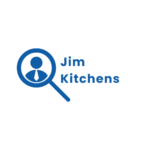Managing money can feel overwhelming, especially with so much information out there. I often find myself wondering if I’m making the right financial choices. That’s where a personal finance quiz comes in handy. It’s a fun and engaging way to assess your financial knowledge and habits while identifying areas for improvement.
Taking a quiz not only tests your understanding of personal finance principles but also highlights gaps in your knowledge. Whether you’re a seasoned pro or just starting out, this interactive approach can help you gain clarity and confidence in your financial journey. Let’s dive into how a personal finance quiz can empower you to take control of your financial future.
Personal Finance Quiz
- Understanding Financial Concepts: Personal finance quizzes enhance financial literacy by engaging users with key concepts like budgeting, saving, investing, and debt management.
- Identifying Strengths and Weaknesses: Completing a quiz helps pinpoint areas of strength in financial habits and highlights knowledge gaps that require improvement.
- Variety of Quizzes: Different types of personal finance quizzes cater to various expertise levels, from basic financial knowledge to investment strategies, promoting comprehensive financial education.
- Actionable Insights from Results: Results from quizzes can be used to set actionable financial goals and create effective budgeting plans, guiding individuals toward better financial management.
- Interactive Learning: Engaging with quizzes makes learning about personal finance enjoyable and interactive, motivating individuals to take charge of their financial futures.
What Is A Personal Finance Quiz?
A personal finance quiz evaluates an individual’s understanding of financial concepts and practices. It encompasses various topics, including budgeting, saving, investing, and debt management. Quizzes typically consist of multiple-choice questions that measure financial literacy and habits.
Evaluating financial fitness through a quiz highlights strengths, weaknesses, and knowledge gaps. Identifying these areas allows individuals to focus on specific improvements. Engaging with a personal finance quiz makes learning interactive and encourages proactive financial behavior.
Personal finance quizzes vary in complexity and length. Some quizzes target beginners, while others challenge more experienced individuals. Completing a quiz can lead to a better grasp of essential financial principles, ultimately fostering informed decision-making regarding personal finances.
Benefits Of Taking A Personal Finance Quiz
Taking a personal finance quiz offers several significant benefits that can enhance my financial literacy and decision-making skills.
Improved Financial Literacy
Improved financial literacy leads to better money management skills. By answering quiz questions, I engage with crucial financial concepts like budgeting, saving, and investing. Each question helps reinforce my understanding, making it easier to apply these principles in real-life scenarios. Quizzes often present practical situations, allowing me to see how financial decisions impact my overall financial health. Regularly taking quizzes boosts my knowledge and keeps me informed about best practices in personal finance.
Identifying Strengths And Weaknesses
Identifying strengths and weaknesses provides valuable insight into my financial habits. Quizzes highlight areas where I excel, such as saving or debt management, while also revealing gaps in my understanding. This clarity allows me to target specific areas for improvement, whether that means researching investment strategies or enhancing my budgeting techniques. Recognizing my weaknesses fosters a proactive approach to financial education, guiding my efforts toward achieving comprehensive financial wellness.
Types Of Personal Finance Quizzes
Various personal finance quizzes exist to cater to different aspects of financial understanding. Each type focuses on essential skills, helping individuals improve their financial literacy.
Basic Financial Knowledge Quizzes
Basic financial knowledge quizzes aim to assess fundamental concepts such as income, expenses, and interest rates. These quizzes often include multiple-choice questions about basic definitions and principles, like understanding credit scores and savings accounts. Engaging with these quizzes lays a solid foundation for effective financial management and promotes awareness of essential financial terminology.
Budgeting And Saving Quizzes
Budgeting and saving quizzes focus specifically on evaluating skills related to tracking income and managing expenses. Questions may revolve around creating budgets, setting savings goals, and identifying effective saving strategies. By taking these quizzes, individuals can identify their budgeting strengths and weaknesses, leading to better financial planning. This targeted approach cultivates better money management habits and enhances overall financial stability.
Investment Knowledge Quizzes
Investment knowledge quizzes assess understanding of investing principles, market trends, and risk management. These quizzes often cover topics like stocks, bonds, mutual funds, and portfolio diversification. By participating in investment knowledge quizzes, individuals can recognize gaps in their investment knowledge, allowing them to make informed decisions about asset allocation and long-term financial growth. This deeper understanding of investments supports strategic planning for future financial goals.
How To Use Your Quiz Results
Using your quiz results effectively can lead to significant improvements in your financial life. After assessing your financial knowledge and habits, I can take actionable steps to enhance my financial wellness.
Setting Financial Goals
Setting clear financial goals becomes easier after analyzing quiz results. I can categorize goals into short-term, medium-term, and long-term.
- Short-term goals: Focus on establishing an emergency fund or paying off small debts within one year.
- Medium-term goals: Target savings for a down payment on a home or funding higher education within three to five years.
- Long-term goals: Plan for retirement or wealth accumulation over a decade or more.
Using specific, measurable, achievable, relevant, and time-bound (SMART) criteria helps in creating meaningful goals. I pinpoint areas for improvement based on quiz categories, ensuring goals align with my financial aspirations.
Creating A Budget Plan
Creating a budget plan based on quiz insights aids in effective financial management. I start by calculating monthly income and categorizing expenses into fixed and variable.
- Fixed expenses: Include rent, utilities, and subscriptions that remain constant each month.
- Variable expenses: Cover groceries, entertainment, and other discretionary spending that fluctuates.
Implementing the 50/30/20 rule can streamline this process. I allocate 50% of my income to needs, 30% to wants, and 20% to savings and debt repayment. Adjusting my budget frequently allows for tracking spending habits and identifying areas for improvement, ultimately enhancing financial discipline.
Financial Journey
Taking a personal finance quiz can truly transform the way I approach my financial journey. It’s not just about answering questions; it’s about gaining insights into my financial habits and knowledge. By identifying my strengths and weaknesses, I can focus on areas that need improvement.
This proactive step towards financial education empowers me to make informed decisions. With greater financial literacy, I feel more confident in setting and achieving my financial goals. Whether I’m just starting out or looking to refine my skills, these quizzes offer a valuable opportunity for growth. Embracing this interactive approach to personal finance is a smart move toward securing a brighter financial future.

